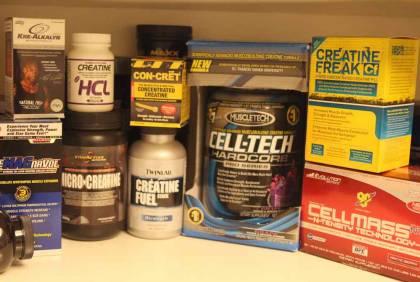Uncensored

Scott Welch has devoted his career studying performance enhancement and weight loss through dietary intervention. He received a bachelor of applied science degree in Nutrition from Ryerson University and later completed a post-graduate certificate in advertising. He’s had countless interactions with leading scientists, doctors, and hundreds of trainers from around the world, giving him a unique perspective that others lack. Welch founded MUSCLE INSIDER in 2009.

New Forms Of Creatine
Q. I’ve heard about many advances in creatine supplementation over the years, but is there any science or research that shows that they really work any better than creaatine monohydrate?
A. The last major breakthrough in creatine delivery was by Dr. Paul Greenhaff in 1994, when he discovered that very high levels of carbohydrates or simple sugars such as dextrose can improve creatine delivery and improve the associated benefits of creatine supplementation (i.e., increased muscle mass and strength). Since then, companies have been trying to improve the action of creatine by changing the creatine molecule itself, making it an ester (e.g., ethyl ester) or salt (e.g., citrate, pyruvate, malate decanoate), or combining it with other compounds (e.g., creatine amino-butyrate, creatine alpha ketoglutarate, creatine pyroglutamate). Supplement companies are always looking for ways to improve the delivery of creatine rather than change the actual chemical structure.
Russian Taragon
Various compounds and botanicals have been investigated, but much of the research is preliminary so far. For example, an abstract released in 2008 suggested that an extract from the herb Russian Tarragon may influence plasma creatine levels; however, the results are inconclusive regarding creatine uptake, retention, or any of the common benefits of creatine. But this is positive news all the same, this takes us ahead of just plain old creatine monhydrate.
Creatine + Fenugreek Extract
In June, a novel research study was published in the Journal of Sports Science Medicine comparing traditional creatine dosing (creatine + carbohydrates) versus creatine dosing using creatine plus fenugreek extract. The results of this eightweek study were very positive, fenugreek extract seems to reduce the need for carbohydrates to improve creatine delivery. Without loading, subjects ingesting creatine plus the standardized fenugreek extract significantly increased strength and muscle mass and reduced body fat compared to those taking a placebo. Effectively, the creatine plus fenugreek treatment provided the benefits of traditional creatine without the added calories! No loading, no sugar, no crash! The ingredient leading the fenugreek and creatine movement is called Biocreat™ which was discovered by Indus Biotech, a drug discovery company that has developed proprietary technology to isolate, purify, and stabilize pharmaceutically active components from botanical sources. Currently, this cutting-edge ingredient is available for product development from CPC Nutrition (www.cpcnutrition.com). Biocreat™ is a quantum leap in creatine dosing and represents the future of creatine supplementation.
Creatine HCL
Another form of creatine that’s truly awesome (and one I’m personally
“on” right now) is also one I think is going to be the standard order in
most creatine supplements in the future. It’s a form of creatine called
creatine hydrochloride, or creatine HCl for short. The first company to
bring this to market was ProMera Health, with its CON-CRETE product in the US and Canada. Most recently, SD Pharmaceuticals included it in its CREATINE HCL product, and MuscleTech now has it in its new NEUROCORE pre-workout powder. According to one source, research shows that creatine HCl is 59 times more soluble than traditional creatine monohydrate! Since every supplement, food, or drug you consume must be dissolved and liquefied before your body can utilize it, increasing solubility is a great way to increase absorption. I’ve used creatine HCl now for one month and find it doesn’t bloat my stomach as monohydrate has with me in the past. Now the label says that you don’t have to take as much creatine HCl as you do with creatine monohydrate; I don’t buy that completely, but to do it any more gets quite costly. But Scott “Supplement Genius” Welch gets all his supplements for free, so I take 3,000 milligrams for my maintenance dose and have gotten great results.

